By By Sandy Fitzgerald — Newsmax.com — The late Dr. Martin Luther King Jr. taught that people “must learn to live together as brothers and sisters or perish together as fools,” and his message still holds true in a nation that has become increasingly divided, his niece, Alveda King, said Monday, on the federal holiday that honors her uncle. “I believe we can begin to learn to live together as brothers and sisters with personal accountability,” King said on Fox News’ “Fox and Friends.” “We have to realize that we are one human race, not separate races.” King said she’s personally decided “not to argue, not to fuss, even though my political views may vary and be different from others’.” For example, she said, she is “very pro-life” and she will “continue to say that it is a civil wrong to abort a baby” but she won’t argue or fight with others about it. “I believe we can heal if we begin to communicate with compassion rather than anger,” said King. She added that she believes her uncle’s advice today would be to “listen to God.” “You have to remember Martin Luther King Jr. was a Baptist preacher, so he would be telling us to look to God and to pray for those who are in authority so that we can have peaceful lives,” said King. “So we pray for our leaders, when we don’t agree we peacefully make that known. We have other elections and things coming up. We can vote again soon. So be aware of that as well.”
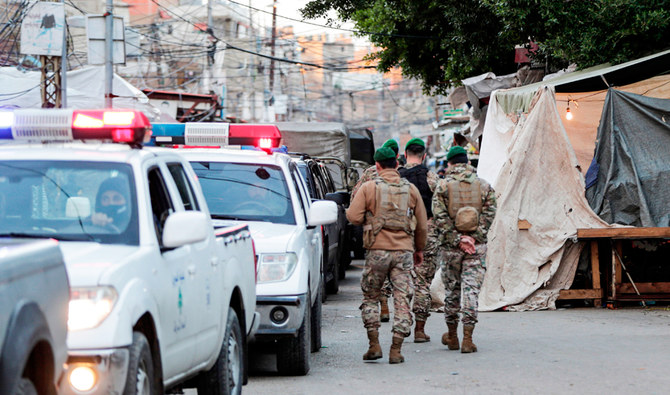
By NAJIA HOUSSARI — arabnews.com — BEIRUT: Many doctors specializing in bacterial and infectious diseases expect a further jump in the number of people of infected with COVID-19 next week in Lebanon with hospitals exceeding their capacity. On Sunday, the total number of laboratory-confirmed infections exceeded a quarter of a million people in the country. In the first 17 days of the year 67,655 new cases were recorded, and the lockdown period is expected to be extended for at least 10 more days. Suleiman Haroun, head of the Lebanese Syndicate of Private Hospitals, said: “The epidemiological scene in Lebanon reflects part of the reality, not all of it. The real situation will be worse yet.” He said: “All the beds designated for COVID-19 patients in hospitals are occupied, as well as in emergency departments, and there are dozens of patients moving from one hospital to another in search of a bed. Hospitals have exceeded their capacity.”
Pulmonologist and intensive care specialist Dr. Wael Jaroush said: “I have never seen anything like what I see in the hospitals now. I never imagined that I would ever go through such an experience. There is no room for patients in the emergency departments. “They are dying in their homes. Some of them are begging to buy oxygen generators, new or second hand. “The price of a new one is normally $700, yet people are selling used devices for about $5,000, and some patients are forced to buy them in foreign currency, meaning that the patient’s family buy the dollar on the black market for more than LBP8,000.”
BEIRUT/LONDON/MOSCOW (Reuters) – The company that bought the ammonium nitrate which exploded in Beirut last August had possible links to two Syrian businessmen under U.S. sanctions for ties to President Bashar al-Assad, according to a report by a Lebanese journalist and London company filings. Savaro Ltd, the trading firm which procured the chemicals in 2013, shared a London address with companies linked to George Haswani and Imad Khoury, according to the report by documentary film-maker Firas Hatoum, which aired on Lebanon’s al-Jadeed TV station this week. Haswani, Khoury and his brother Mudalal Khoury have all been sanctioned by Washington for supporting Assad’s war effort. All three are joint Syrian-Russian nationals, according to the U.S. sanctions list and a database that gathers data from official Russian institutions. The U.S. Treasury accused Mudalal Khoury in 2015 of “an attempted procurement of ammonium nitrate in late 2013”. It sanctioned his brother Imad a year later for engaging in business activities with Mudalal. Haswani was sanctioned in 2015 on charges of helping Assad’s government to buy oil from Islamic State militants, which he has denied.
In reviewing filings with Companies House, the UK’s companies registry, Reuters found that Savaro and Hesco Engineering and Construction Company Ltd, a firm subject to U.S. sanctions for its links to Haswani, both moved their corporate registers — official company records — to the same London address on June 25, 2011. That address was also the registered office for IK Petroleum Industrial Company Ltd, in which Imad Khoury was a director, the filings show. Dozens of companies can share listed addresses and such links do not necessarily prove company owners are connected. But it is rare for firms to move their registers, particularly to the same address on the same day, according to a Reuters review of filings by hundreds of companies.
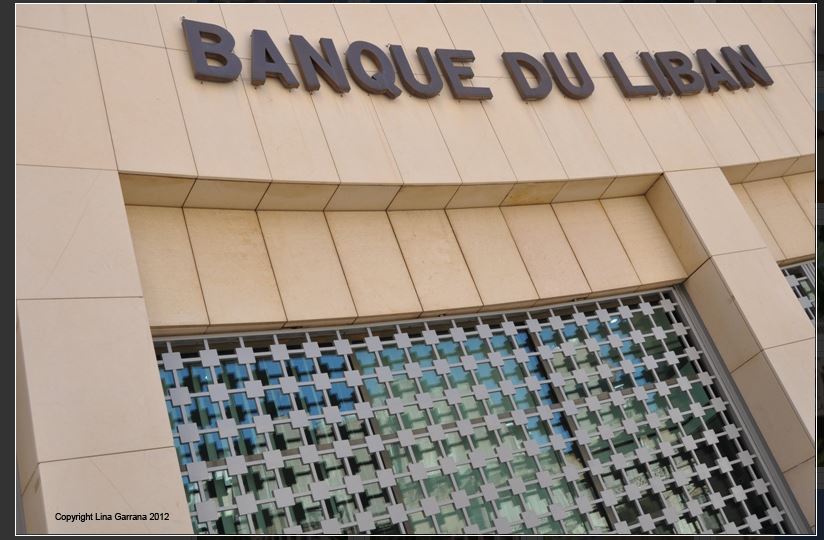
By George Eid and Andrew Rosenbaum — cyprus-mail — Lebanese banks in Cyprus, like all Lebanese banks, are facing intense pressure from the Lebanon central bank (Banque du Liban) to raise capital. At the same time, most Lebanese banks are owed large sums by the country’s government. As a result, the Central Bank of Cyprus (CBC) has asked branches of Lebanese banks here in Cyprus to guarantee deposits to 100 per cent. Given that the total sum of deposits in Cyprus branches of Lebanese banks is about €200 million – a fraction of the total of near €100 billion in deposits in Cyprus banks – there is little danger for systemic consequences for the Cyprus banking system. Total deposits in all Lebanese banks declined by $31 billion since early 2019, the largest drop in their history.
Some Lebanese banks “still have the muscles” to maintain their presence on the island and elsewhere, one banker explains. “It is a case-by-case situation when it comes to Lebanese banks.” It’s not the first time this has happened. Back in March, after Lebanon defaulted on its public debt, the CBC asked the nine Lebanese bank branches in Cyprus to increase deposit guarantees. Given the upheaval in Lebanon at present, and the demand by the Banque du Liban for a major increase in reserve capital at all banks in the country, it is not by any means a surprising demand, banking industry experts say. The real pressure on Lebanese banks comes from the Banque du Liban which is demanding that all Lebanese banks increase their capital by 20 per cent and to have 3 per cent in foreign currency reserves outside the country as a further guarantee, explains Lebanese Economist Nassib Ghobril. Banks that are unable to raise capital by 20 percent, risk having to exit the market.

This site is dedicated to the Christian Maronite el Khazen family in Lebanon. Its recorded history in Mount Lebanon dates back to the sixteenth century. For over three centuries, the el Khazen family had been involved in Mount Lebanon’s politics under Ottoman rule as well as with the Maronite church and the Roman Catholic church.
Members of the el Khazen family ruled large districts in Mount Lebanon, notably during the Ma’ni and shihabi Imarah, and maintained close ties with Amir Fakhreddin II (1572-1635). The most notable figures during that period were Sheikh Abou Nader el Khazen and his son sheikh Abou Nawfal, who was also Consul of France in Beirut in 1655 and, after his death, members of his immediate family for nearly a century, and Consul of Venice in 1675.
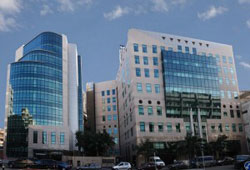
Beirut (AFP) Lebanon hit new daily records of 44 coronavirus deaths and over 6,000 new infections Friday, the second day of a lockdown aimed at preventing the country’s creaking healthcare system from collapsing. The country of six million recorded 6,154 new infections over the past 24 hours, the health ministry said, as hospitals in Beirut reached full capacity. The announcement came as the American University of Beirut’s medical centre, one the country’s top facilities, said that its intensive care units, COVID-19 units and emergency room were all full. “We are unable to find beds for even the most critical patients,” it said in a statement.
The World Health Organisation says that occupancy rates for ICU beds across the country has reached 90.4 per cent, up from 81 per cent on December 22. Occupancy rates for regular beds has shot up from 72.5 percent to 86.3 percent over the same period, it added. Recent days have seen cases surge in one of the steepest increases in transmission worldwide. Lebanon has recorded 243,286 coronavirus cases and 1,825 deaths since its outbreak started in February. Infections skyrocketed after authorities loosened restrictions during the holiday season, allowing restaurants and nightclubs to remain open until 3:00 am, despite warnings from health professionals.
BEIRUT (REUTERS) – Lebanon’s parliament on Friday approved a law that paves the way for the government to sign deals for coronavirus vaccines as it battles a steep increase in infections. Lebanon said in mid-December it was expecting to sign a deal for supplies of Pfizer-BioNTech’s COVID-19 vaccine and hoped to receive the first batch eight weeks after that. But the country, now struggling with a severe spike in infections that has overwhelmed hospitals, hit a legal stumbling block that has so far prevented it from finalising the agreement. The new law would give Pfizer-BioNtech, and other companies that provide vaccines to Lebanon, protection from any future liability claims for two years. It includes a clause that points to the Lebanese health ministry as the only entity responsible for compensation.
Lebanon is under a three-week lockdown that ends on Feb. 1 and a strict 24-hour curfew until Jan. 25 after lax measures over the Christmas and New Year’s holiday period led to a spike in cases. Hamad Hasan, the country’s caretaker health minister, has previously said the ministry had secured about 2 million doses of Pfizer-BioNTech’s COVID-19 vaccine, to cover 20% of Lebanese nationals, but the government has yet to announce a starting date for a national vaccination programme. Hasan on Friday tweeted his thanks to the parliament for approving the law. He has been hospitalised since Wednesday with coronavirus but is in stable condition and continuing to work from his hospital bed. Apart from the anticipated Pfizer-BioNtech deal, Lebanon’s President Michel Aoun approved on Friday the transfer of 26.4 billion Lebanese pounds ($17.53 million) to COVAX to book 2.73 million vaccines, his official twitter account said.
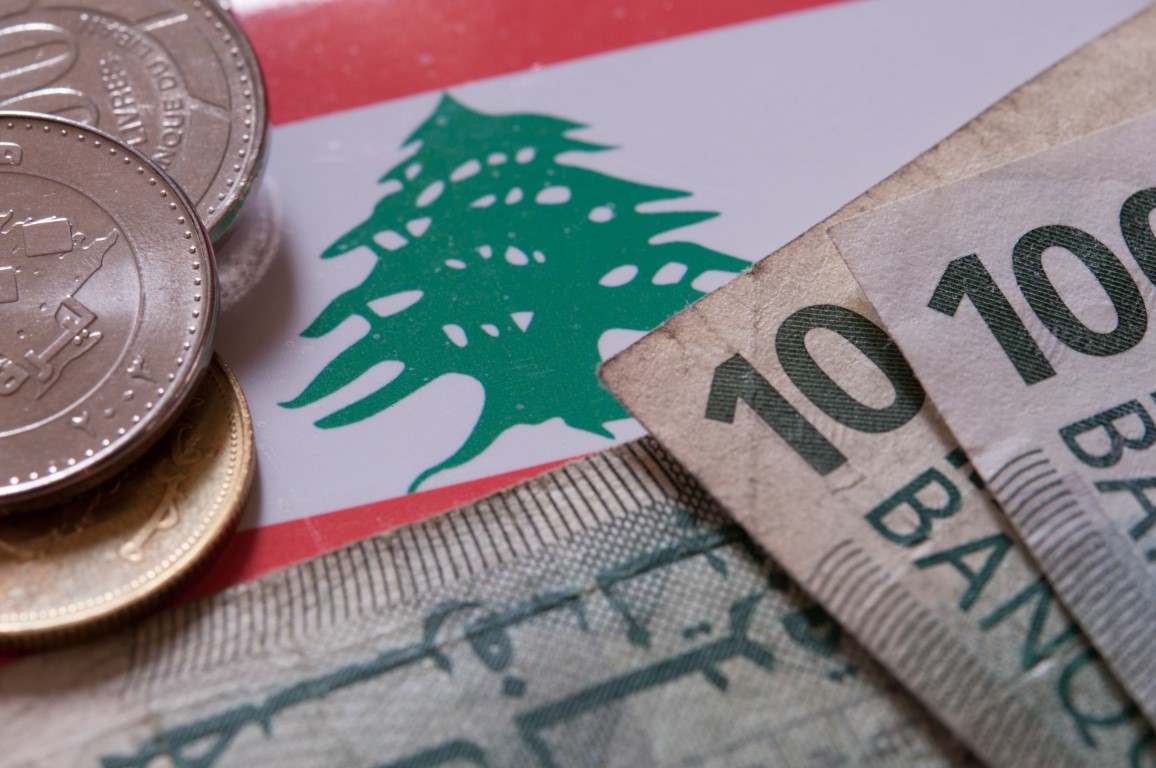
By By Tony Akleh — arabianbusiness.com — The Lebanese pound continues to be ranked as the most undervalued currency in the world, according to new research. An analysis by Arabian Business based on the Big Mac Index published by The Economist shows that a Big Mac costs 68.7 percent less in Lebanon (LBP15,500 or $1.70) against $5.66 in the United States in January. The implied exchange rate is 2,738.52. The difference between this and the actual exchange rate, 8,750.00, suggests the Lebanese pound is 68.7 percent undervalued, that means Lebanon has the cheapest Big Macs in the world.
The second most undervalued currency is the Russian rouble at 68 percent followed by the Turkish Lira at 64.5 percent. The Big Mac Index for January, which tracks 55 currencies, ranked the Swiss Franc (+28.8 percent overvalued), Swedish Krona (+12.6 percent) and Norwegian Krona (+7.5 percent) as the most overvalued currencies. The rate LBP/$8,750 as of Thursday means the currency has lost 83 percent of its value in the past year since banks began restricting withdrawals of dollars. Lebanon has pegged the value of its currency to the dollar at the rate of LBP1,507 for the past three decades, and the government still officially maintains the level even as the pound collapses and banks halt all dollar withdrawals, except for what are called “fresh” transfers of dollars from overseas. Lebanon’s central bank governor Riad Salameh announced last week that the era of the dollar peg was finished but added that the country’s currency will not be floated unless an agreement with the International Monetary Fund was reached. The admission of the currency peg’s demise was a first from the central bank governor, who has spent years upholding the rate that crashed in 2020.
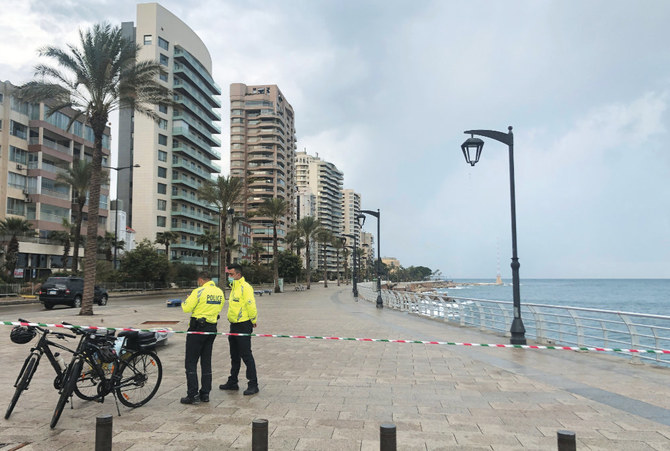
by NAJIA HOUSSARI — arabnews.com — BEIRUT: Lebanon’s security forces have praised public compliance with lockdown measures as the country struggles to reduce a dramatic rise in the number of coronavirus cases. Internal Security Forces spokesman Col. Joseph Mousallem told Arab News that the rate of commitment to the curfew was 90 percent across the country, including poorer districts, where residents previously have been skeptical about measures to stop the spread of the virus. However, with 10 days until the nationwide lockdown ends, a record 5,000 confirmed coronavirus cases were reported on Wednesday. A 19-year-old man was among the 35 deaths. Director of the Hariri Governmental University Hospital, Dr. Firas Al-Abyad, renewed his warning that “the situation is very serious, and we need to work together to end these difficult circumstances.”
Lebanon’s healthcare sector is exhausted after 10 months of dealing with the pandemic, he said. “We need to find an exit from this situation.” Most hospitals in Lebanon have canceled all but emergency operations amid warnings of bed shortages and medicines running low. Beirut and other major cities have been largely silent in recent days, with traffic limited to grocery deliveries and vehicles exempted from the curfew. Observers say that a media campaign urging people to stay home by highlighting the suffering of patients and those unable to find a hospital bed appears to have convinced most Lebanese to adhere to the latest restrictions. However, Dr. George Jovelekian, head of the intensive care department at St. George Hospital University Medical Center, said that the country still faces “two catastrophic weeks in terms of coronavirus cases.” He called on people to follow the restrictions so that medical staff can continue to perform their duties.
by BY JOHN BOWDEN — thehill.com — Health officials in Brazil said Tuesday that a Chinese-produced vaccine for COVID-19 is just over 50 percent effective in preventing infections, above the World Health Organization’s (WHO) benchmark standards for vaccine effectiveness but far below several vaccines produced by Western nations. The New York Times reported that the […]




